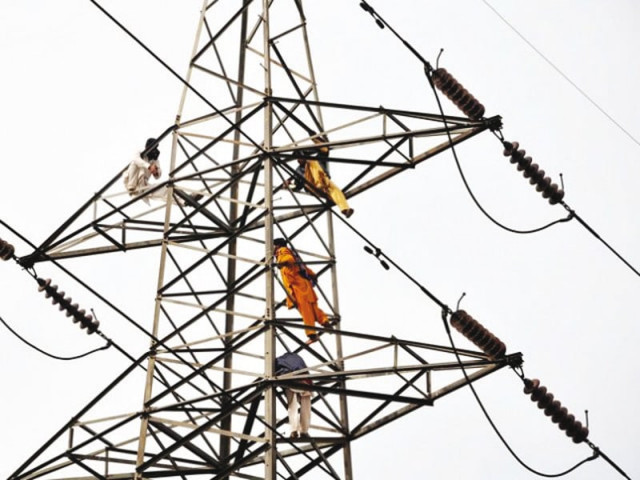Power project: IDB agrees to fill financing gap in CASA-1000 project
World Bank had earlier approved little less than 50% of total cost.

The Islamic Development Bank (IDB) has agreed to finance the CASA-1000 megawatt power import project, filling the gap left after the World Bank had agreed to finance a little less than 50% of the total cost.
The total cost is estimated to be at $1.17 billion. The Board of Directors at World Bank had approved financing of the CASA-1000 project at $526.5 million in March this year.
Sources said the IDB had agreed to contribute to fill the gap that would see the export of electricity to Pakistan.
Pakistan had also signed an agreement with Afghanistan on electricity transit fees at 1.25 cents per unit in Washington during the ongoing month, marking a major step towards closer partnership between the two countries.
Tajikistan Ambassador Sherali S Jononov told The Express Tribune that Tajikistan President Emomali Rahmon met with IDB President Ahmed Muhammad Ali on Monday in Dushanbe and discussed the current state and prospects of further development of cooperation with the influential financial institution.
He said that it was stressed during the meeting that the IDB had provided concessional loans and technical assistance to Tajikistan, aid that amounted to over $210 million. The cooperation was aimed at the implementation of crucial investment projects in various economic sectors.
Many other projects to the tune of $145 million are now being implemented in the areas of energy, transport, water, health and education.
Ahmed Muhammad Ali, praising the role of Tajikistan and its president in helping solve the problems of the Muslim countries, reiterated the readiness of the IDB to participate in the financing of regional projects such as the CASA-1000, the railroad Tajikistan-Afghanistan-Turkmenistan among others.
Tajik Embassy sources said the power import project will ensure a steady source of revenue for Tajikistan and Kyrgyz Republic, the weakest economies in Central Asia. They said that it required no new investment in generation because it uses surplus water that would otherwise be wasted.
“It will alleviate electricity shortages in Pakistan during the summer when demand is at its highest and replace fuel based electricity generation for Afghanistan and Pakistan,” they said, adding that it will also establish Afghanistan as a viable transit country and offer transmission capacity for other countries during the off-peak season
It creates a viable governance mechanism to build confidence among neighbours.
“The development of the Central Asia South Asia Regional Electricity Market (CASAREM) is envisaged as a phased development of institutional arrangements and infrastructure to link Central Asia’s power resources with South Asia’s energy shortages and growing energy demand,” water and power ministry officials said, adding that the improved electricity interconnections offer an opportunity to resolve the power crisis and contribute to stability and growth in Afghanistan, and boost inter-dependent prosperity in all the countries involved.
It is expected that the project will deliver a number of economic, social and environmental benefits to all participating countries.
“These benefits include, among others, energy poverty alleviation, improved trade, job creation and reduction of carbon dioxide (CO2) emissions due to supply of clean electricity,” power ministry officials added.
Published in The Express Tribune, October 29th, 2014.
Like Business on Facebook, follow @TribuneBiz on Twitter to stay informed and join in the conversation.



















COMMENTS
Comments are moderated and generally will be posted if they are on-topic and not abusive.
For more information, please see our Comments FAQ